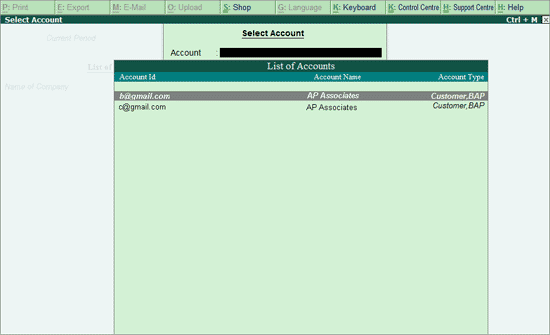
The Audit and Compliance feature provided for India is the Statutory Audit.
Now you can not only maintain financial data on Tally.ERP 9, you can also make it ready for audit - AuditReady!
Tally.ERP 9 offers auditing tools which will help you ensure that your books of accounts are maintained as per statutory requirements:
Compare your business' previous year and current year data to ensure that the information you provide to your auditor is error-free.
Spot and rectify data entry errors with ease.
Obtain reports on receivables and payables with just a few clicks.
Schedule VI Financial Statements (Balance Sheet and Profit & Loss Account) have been provided, and you don't have to switch between applications to ensure your financial reports are complete.
AuditReady is a complete package which enables you to perform internal checks, and ensure a simplified audit cycle for your business.
Tally.ERP 9 Audit Tools are now available for Non-BAP customers (users who are not registered as BAP users of Tally.ERP 9) too, which means they can prepare their financial data before it is used for auditing.
With Audit Tools, users can perform internal scrutiny on their data, and audit the data with their own teams within the organisation, before the same is presented to auditors.
This way, the amount of checks to be done by the organisation's internal/external auditors is reduced, and the entire auditing process is simplified.
The audit details recorded by users while scrutinising their data will be captured and stored for their respective Account IDs. Likewise, audit details recorded by CAs who are registered as BAP users will be captured and stored for their respective BAP Account IDs. Audit details recorded by the customer and the BAP user will therefore, be stored separately.
Mr. A, a non-BAP user, uses Tally.ERP 9's Audit Tools to prepare his data which is to be audited his CA, Mr. B
Mr. A logs in with his Account ID, audits his data, and records Audit Note for a Payment Voucher.
Mr. B logs in with his BAP Account ID and audits the data provided to him by Mr. A, and records an Audit Note for the same Payment Voucher.
Here, Mr. A will be able to view the Audit Note he has recorded, but not the Audit Note Mr. B, his Auditor has recorded. Similarly, Mr. B will not be able to view the Audit Note recorded by Mr. A.
If, in the above scenario, two CAs, Mr. B and Mr. C, having BAP Account IDs are involved in auditing Mr. A's data,
Mr. A logs in with his Account ID, audits his data, and records Audit Note for a Payment Voucher
Mr. B logs in with his BAP Account ID and audits the data provided to him by Mr. A, and records an Audit Note for the same Payment Voucher
Mr. C, the other Auditor, logs in with his BAP Account ID and records an Audit Note for the Voucher.
Here, Mr. A will be able to view the Audit Note he has recorded, but not the Audit Note Mr. B or Mr. C, his Auditors have recorded. Similarly, Mr. B and Mr. C will not be able to view the Audit Note recorded by Mr. A.
If, in the above scenario, two CAs, Mr. B and Mr. C, having BAP Account IDs are involved in auditing Mr. A's data, and Mr. D, an article who is a part of the audit teams of both Mr. A and Mr. B,
Mr. A logs in with his Account ID, audits his data, and records Audit Note for a Payment Voucher
Mr. B logs in with his BAP Account ID and audits the data provided to him by Mr. A, and records an Audit Note for the same Payment Voucher
Mr. C, the other Auditor, logs in with his BAP Account ID and records an Audit Note for the Voucher.
When Mr. D logs in with his BAP Account ID,
The Account IDs of both Mr. B and Mr. C will be in the List of Accounts for selection:

If Mr. D selects Mr. B's Account, he will be able to view the Audit Details recorded by Mr. B, and not the Audit Details recorded by Mr. A or Mr. C.
If Mr. D selects Mr. C's Account, he will be able to view the Audit Details recorded by Mr. C, and not the Audit Details recorded by Mr. A or Mr. B.